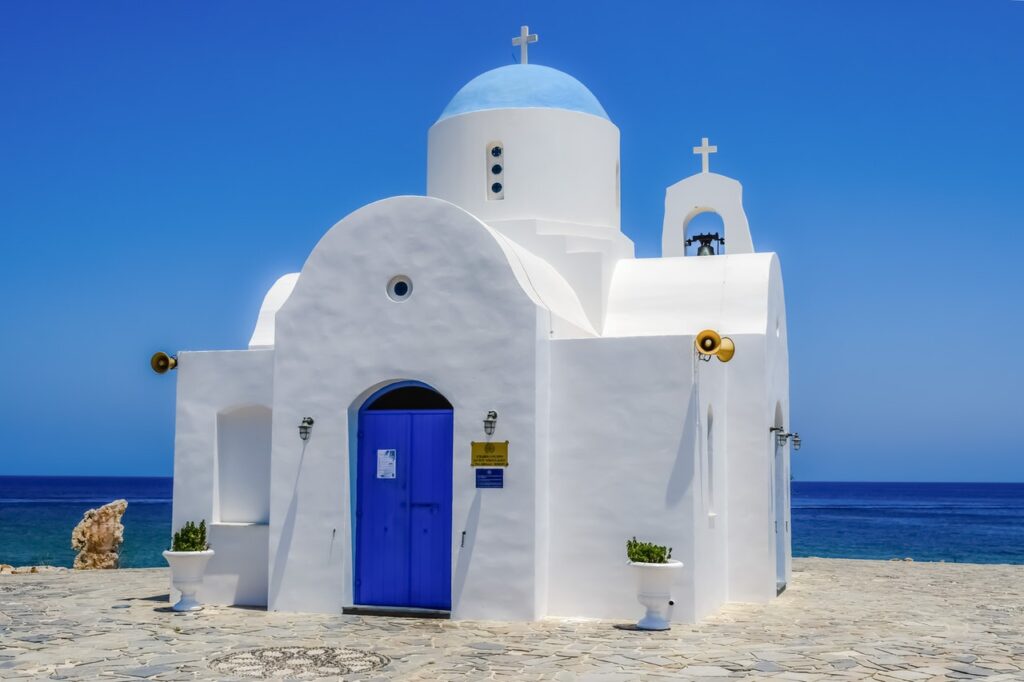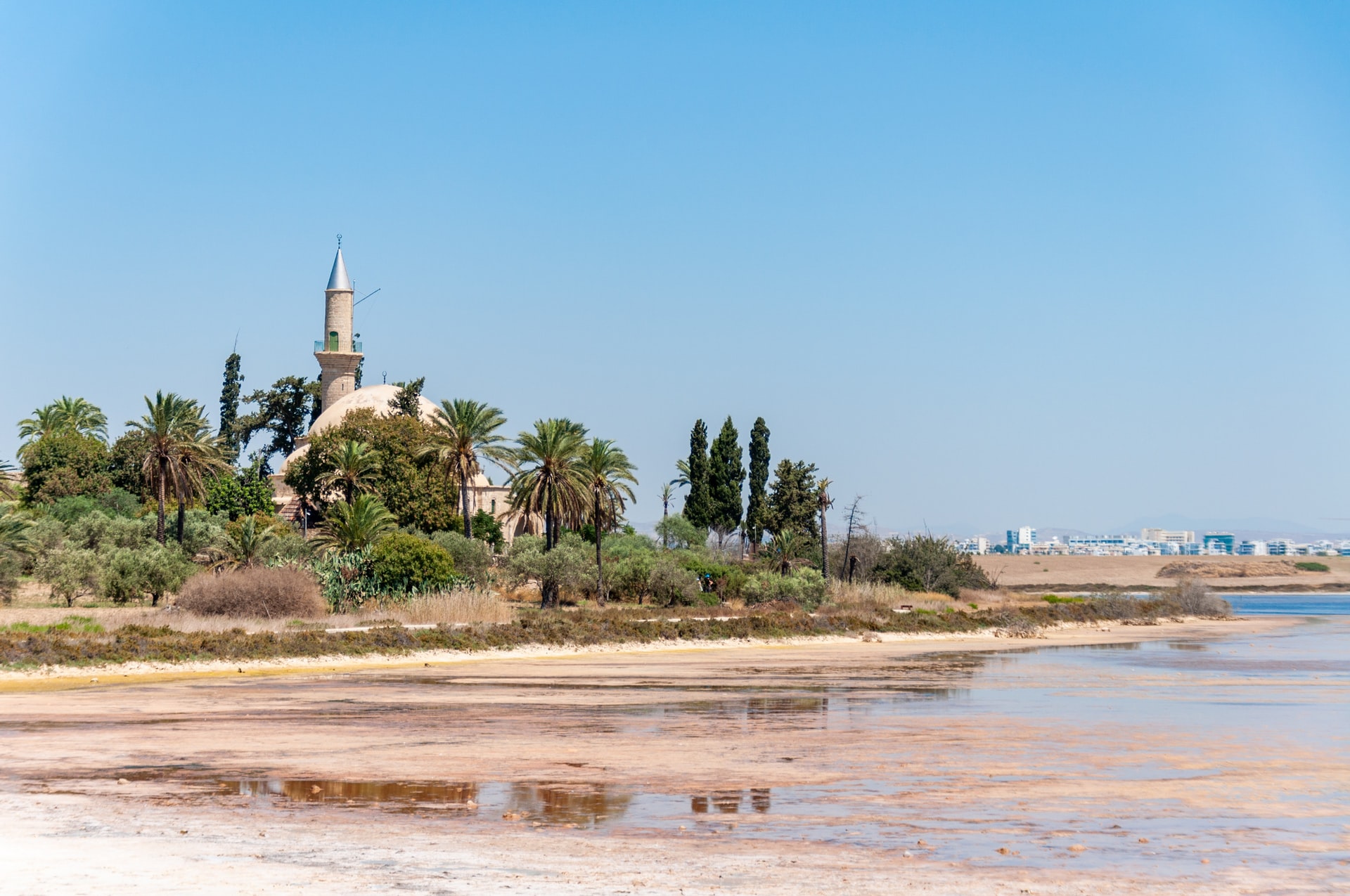For the last few decades, the small Mediterranean island of Cyprus has been divided into 2 independent regions. Northern Cyprus and the Republic of Cyprus. The Greek Cypriot majority controls the UN recognised, Republic of Cyprus, whilst the north is under the control of the Turkish Cypriot population, and is not officially recognised as a country by anyone, except for Turkey.
A BRIEF HISTORY
There is evidence of human activity in Cyprus going back around 12,000 years. Since then, its size and location has made it very popular amongst imperial forces in the region. It was first occupied by the Mycenaean Greeks in 2000BC, then the Assyrians, the Egyptians, and the Persians.
Later it was conquered by Alexander the Great, until the Romans moved in, followed by the Arab caliphates, then the French, then the Venetians, and finally, the Ottoman Empire in 1571. In the 20th century it became the property of the British Empire. Why did Britain have it? Because it was one of many Ottoman Empire territories inherited by the Allies after the First World War.
The 2 largest ethnic groups in Cyprus, account for about 95% of the nations 1.2 million people (77% Greek & 18% Turkish). The remaining 5% come from all over Europe, Asia and Africa, including a significant Armenian Christian population, which has resided in Cyprus for centuries.
For the last 6 decades, the 2 dominant cultures have continued to battle for custody of the small nation, which only achieved independence from Britain on the 16th of August, 1960. There was a treaty of guarantee established the same year between Greece, Turkey, Cyprus and the UK, obliging all of them to recognise the sovereignty of Cyprus.
In 1974, A Greek military junta staged a coup in order to take the island, and unite them with Greece. This lead to an invasion by the Turkish army. Following the ceasefire of 1988, the Turks had control over a large slice of the island, and still occupy it today. Their actions were condemned by the international community and the north is not recognised as a legitimate state.
A UN buffer zone between the sides continues to be patrolled by international troops, and there are several enclaves throughout Cyprus which house British Military Bases. Cypriots can visit these enclaves, just not the actual bases.
TODAYS PLAYERS
Around 4% of the island is controlled by the UK or the UN. The Republic of Cyprus holds about 60% of the landmass, whilst Northern Cyprus occupies the remaining 36%. Despite the enthusiasm for an end to the current division, all attempts at re-unification have failed.
In spite of all the conflict, Cyprus is still an incredibly beautiful country with a very high quality of life for its citizens. Religiously speaking, Greek Cypriots are predominantly Eastern Orthodox, whilst the Turks practice Sunni Islam. However, both regions are very liberal socially, and have always been run by secular governments.
Greek and Turkish are the official languages, but since both sides speak English as a second language, its evolved into the de-facto national tongue. Incidentally, both Greek and Turkish Cypriots fought side by side in the Cyprus Regiment of the British army, during the Second World War.
The city of Nicosia currently serves as the capital for both regions. The UN buffer zone, which keeps the 2 sides apart, slices right through the middle of the City, leaving many buildings, streets and even an airport, completely abandoned.
ARE THEY RICH?
Economically speaking, Cyprus, at the time of independence, was an agrarian afterthought. After the ceasefire, the Northern Cypriots got the grain, citrus and tobacco fields, whilst the Republic of Cyprus still had control of most fruit and vegetable crops, livestock and the vineyards.
After modernising their agriculture and improving the road network – so people could access its picturesque beaches – Cyprus finally started attracting tourism. Relaxed business laws, small corporate taxes and easy citizenship (for those with an easy $2 million to invest) and its convenient location as a shipping hub, eventually brought significant economic prosperity to Cyprus.
However, there was a catch. These new conditions made Cyprus a haven for duplicitous foreign billionaires looking for a backdoor into Europe. Later on, the Eurozone debt crisis which pummelled the Greek economy, also hit Cyprus incredibly hard in 2012.
A large bailout from Europe and a restructuring of the Cypriot banking system, saw the economy return to growth in 2015. At the time of writing, Cyprus is still a work in progress. There’s talk of Amazon establishing its global headquarters in Cyprus, but this is just rumour at this stage.
IN CONCLUSION
After a 4 year break, talks regarding re-unification commenced in Geneva last April, under the auspices of the UN. Unfortunately, it produced yet another stalemate. Now there is a new fight over who has the rights to the enormous reserves of natural gas recently discovered around Cyprus, by ExxonMobil.
But there is light at the end of the tunnel. The younger generations of Cyprus have no time for the petty squabbling of yesteryear. At the European Youth Forum in 2017, many youth organisations from all over the continent signed a pledge to ensure that Cyprus has a peaceful and united future.


